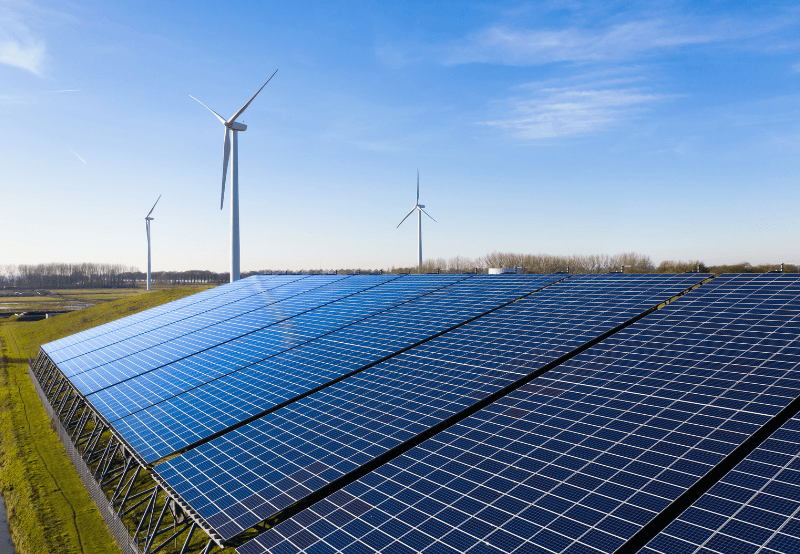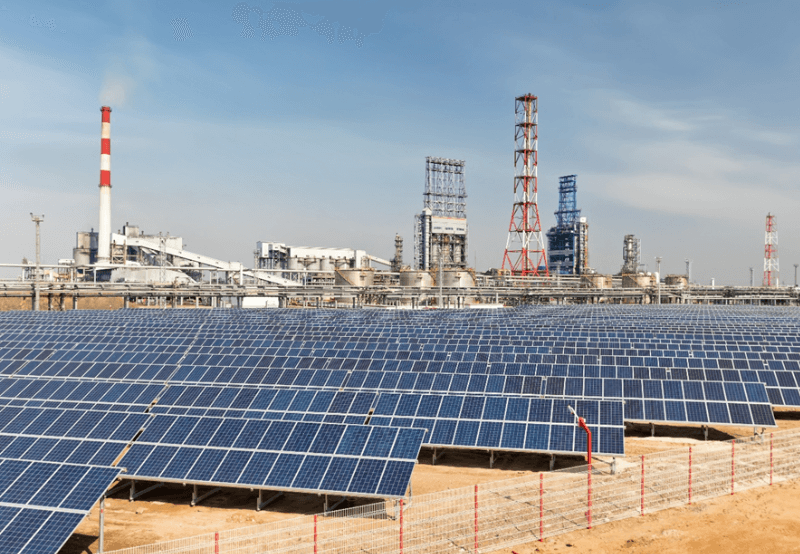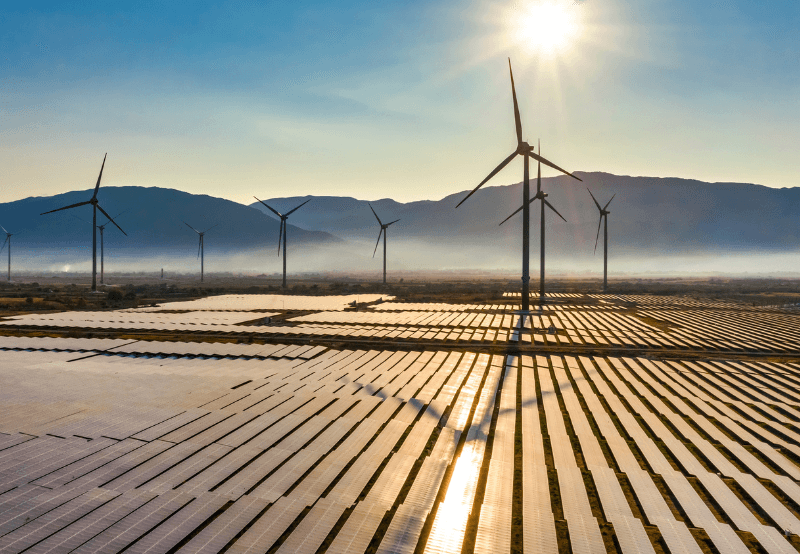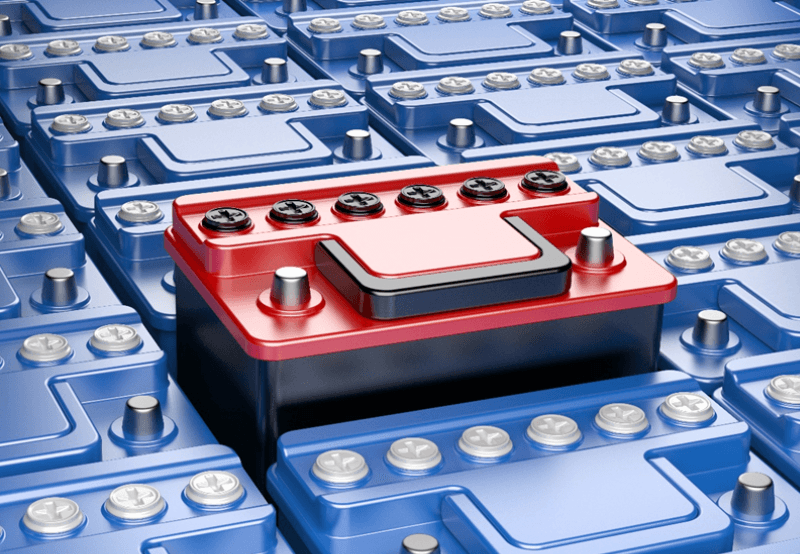African Clean Energy Transition Debate Must Acknowledge Country-wise Diversity
Aligning climate objectives with development goals key to clean energy in Africa
October 27, 2022
The immense benefits of a high renewable energy share in the African energy mix are indisputable, but the objective can be met only by adopting a country and context-specific strategy instead of treating the continent as a monolith, research published in Nature Energy said.
The research was carried out by a team of 40 African researchers who belong to various institutions, including the Berlin-based climate research institute MCC (Mercator Research Institute on Global Commons and Climate Change), University College London, the UN Economic Commission, the Climate Compatible Growth Programme and the University of Oxford.
Lopsided Narrative
For a vast continent like Africa, the energy transition pathway would have to account for the diversity across 54 countries analyzed in the research. “For example, Ethiopia is headed for an accelerated green-growth pathway, but Mozambique is at a crossroads of natural gas expansion with implicit large-scale technological, economic, financial, and social risks and uncertainties,” the research said.
Further, African countries need local leadership to carry the energy transition mantle as these initiatives tend to be more entrenched, unlike efforts by external sources. Infrastructure projects driven entirely by non-local entities tend to be out of sync with the local development agenda and prone to drop if donors lose interest.
“Calls for one-size-fits-all solutions—fossil or renewable—undermine the critical local ownership of development objectives,” the research said.
Another shortcoming in the debate about Africa’s transition towards renewable energy sources is the lack of country-specific evidence and literature. Most studies analyze Africa as a whole and present a simplistic picture that can be categorized as: “Poverty will be entrenched if fossil fuels are either continued or stopped in African contexts.”
Correcting the Framework
The research seeks to address the shortcoming by combining country-specific extant energy scenarios to showcase the different starting points for their energy transition path.
Further, the study incorporated the African Union’s Agenda 2063 vision to extract transition objectives for various countries and the embedded risks and opportunities.
“We applied this framework to demonstrate large country-specific differences as to the types and uncertainties of African countries’ potential energy system pathways,” the study said.
The updated methodology provided interesting granular details about the continent. For instance, the research found that the levelized costs of electricity from solar photovoltaics are 2.5 times higher in Liberia, Sudan, and Sierra Leone than in Botswana, Namibia, South Africa, and Morocco.
Similarly, electrification rates in North African countries, South Africa, Ghana, and several island states are five times higher than in most Sahel countries, Burundi and Malawi.
Country-specific differences of current energy systems and relative generation technology favorability in Africa
The research also illustrated the various uncertainties involved in African countries. For instance, South Africa has low-cost renewables, but entrenched fossil fuel interests also operate, which implies a contested energy transition. Botswana and North African countries are similarly placed.
Separately, Burkina Faso is seeking to increase energy access and generation capacity but is also dealing with uncertainties about the right energy mix. Sahel countries and Madagascar mirror Burkina Faso in the energy mix conundrum.
Recommendations
The study recommended:
- African leaders and international actors must acknowledge the impact of international energy systems on Africa. It should be established through a nuanced debate that assesses trade-offs between climate and development objectives.
- Country and context-specific public policies are needed to navigate the interplay of different political actors’ interests.
- Mobilizing greater financial resources that involve domestic financial institutions and private African capital is key to the energy transition.
- It is imperative to create a scientifically sound, in-depth, and all-encompassing evidence base that features country-specific pathways for all African countries, with priority for those countries with the largest pathway uncertainty.
A recent World Meteorological Organization report said despite Africa being home to 60% of the world’s best solar resources, the continent has only 1% of installed photovoltaic capacity.
The International Renewable Energy Agency called for a calibrated policy framework centered on renewable energy to help resolve many of Africa’s social, economic, health, and environmental challenges. It said the transition can help the region with a 6.4% higher gross domestic product, 3.5% higher economy-wide jobs, and 25.4% higher welfare index by 2050 than under the current system.
Get the most relevant India solar and clean energy news.
RECENT POSTS
Nov 30, 2022
Nov 30, 2022
Mar 2, 2023
Mar 2, 2023
India added 2.5 GW of solar open access in the calendar year (CY) 2022, a year-over-year (YoY) increase of 92% from the 1.3 GW installed in CY 2021, according to the newly released 2022 Q4 & Annual Mercom India Solar Open ...
March 16, 2023
Markets & Policy
25% of Generation Capacity of Coal Plants Must be from Renewables: Ministry of PowerThe Ministry of Power (MoP) has proposed that any coal-based thermal generation station coming up after April 1, 2024, must either install or procure renewable energy equivalent to 25% of the thermal generation capacity. Stakehold...
November 9, 2022
Mercom Research Focus
India’s Solar Market Leaders for 1H 2022Mercom India has released its report, India Solar Market Leaderboard 1H 2022, unveiling solar market leaders in the first half (1H) of the calendar year (CY) 2022. The report covers market share and shipment rankings across the In...
November 9, 2022
Energy Storage
Webinar to Shed Light on How Battery Storage Enhance Solar Systems’ PerformanceBattery energy storage technologies globally are transforming how companies utilize, control, and dispatch electricity and facilitating a smoother transition to clean energy. The Indian market is also realizing how battery storage...
November 9, 2022
Trending News
November 30, 2022
November 30, 2022
March 2, 2023
March 2, 2023
November 28, 2022
Tender & Auctions
PTC India’s EoI to Procure 1 GW of Hybrid Power Receives Overwhelming Response
November 3, 2022
Magazine
Grid
GreenCell Raises $40 Million Funding from ADB to Develop Electric Buses
Energy Storage
Webinar to Shed Light on How Battery Storage Enhance Solar Systems’ Performance
November 7, 2022
Latest News
This is custom content that will be displayed at the video in case you want to give an overview, etc. Michael Ballard
November 30, 2022
India added 2.5 GW of solar open access in the calendar year (CY) 2022, a year-over-year (YoY) increase of 92% from the 1.3 GW installed in CY 2021, according to the newly released 2022 Q4 & Annual Mercom India Solar Open...
March 16, 2023
The Ministry of Power (MoP) has proposed that any coal-based thermal generation station coming up after April 1, 2024, must either install or procure renewable energy equivalent to 25% of the thermal generation capacity....
November 9, 2022
Some test content that can be displayed somewhere maybe if needed? Not sure Michael Ballard
November 30, 2022
March 2, 2023
OUR FLAGSHIP EVENT, MERCOM INDIA RENEWABLES SUMMIT, APRIL 2023 Mercom India Renewables Summit 2023 (formerly Mercom India Solar Summit) brings together developers, manufacturers, investors, innovators, and other key decision...
November 28, 2022
PTC India’s expression of interest (EoI) to procure 500 MW of hybrid renewable energy (wind and solar) (Tranche-I), with a greenshoe option for an additional 500 MW, has received a strong response, according to Mercom sources....
November 9, 2022
Ballard Power Systems, a fuel cell and clean energy solutions provider, recorded a net loss of $42.88 million in the third quarter (Q3) of 2022, a year-over-year (YoY) increase of 39%. The revenue for the quarter was $21.34...
November 9, 2022
Solid Power, Inc., a U.S.-based developer of all-solid-state battery cells for electric vehicles (EVs), reported a net loss of $12.4 million for the third quarter (Q3) 2022, a 46% increase from the $8.45 million loss during the...
November 9, 2022
Get the most relevant India solar and clean energy news.
POPULAR POSTS
Test Video Post2
Nov 30, 2022
14:46 Installs a Record 2.5 GW of Solar Open Access in 2022, Up 92% YoY
Mar 16, 2023
25% of Generation Capacity of Coal Plants Must be from Renewables: Ministry of Power
Nov 9, 2022
JANUARY 2023
Nov 30, 2022
DECEMBER 2022
Mar 2, 2023
NOVEMBER 2022
Mar 2, 2023
Mercom India Renewables Summit 2023
Nov 28, 2022





